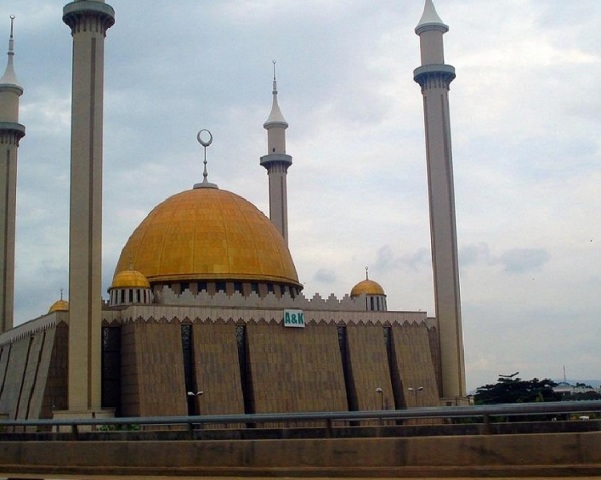Nigeria is most populous country in Africa. Explore some interesting and fun facts about Nigeria.
Facts About Nigeria
Named after the River Niger, Nigeria is a federal constitutional republic in Africa. The country stands divided into thirty-six states and one Federal Capital Territory. Nigeria is situated in Western Africa and is surrounded by the Republic of Benin in the west, Chad and Cameroon in the east and Niger in the north. Its coastal sides fall on the Gulf of Guinea, part of the Atlantic Ocean, in the south. Abuja is the capital city of Nigeria. Nigeria is also one of the most linguistically diverse countries and around 521 languages have been catalogued of which 510 are still spoken, two are second languages without any native speakers and 9 are dead languages. In Nigeria around 50.4% of the population follows Islam, 48.2% are Christians and 1.4% is followers of other religion. If you want to know more about Nigeria, then read further and explore some interesting and fun facts about this fascinating country.

Image: Moises.on@flickr
Fast Facts
Continent: Africa
Capital: Abuja
Area: 923,768 sq. km
Population: 170,123,740
Currency: Naira
Official Language: English
Calling Code: +234
Independence Day: 1 October 1960
Type of Government: Federal Presidential Republic
Interesting & Fun Facts About Nigeria
- Nigeria is officially named the Federal Republic of Nigeria.
- The country was named "Nigeria" after the River Niger.
- Niger River is Africa's third largest river.
- English is the main language of Nigeria. Apart from that, over three hundred languages are spoken in the country.
- Nigerian Naira is the official currency of Nigeria.
- The Federal Republic of Nigeria is a member of the Commonwealth.
- The highest point in the Federal Republic of Niger is Chappal Waddi (2,419 m).
- The main religions in Nigeria are Islam, Christianity, Yoruba Orisha or Orisa veneration and Ifá.
- Apart from being a regional power, Nigeria is also listed amongst the "Next Eleven" economies.
- Nigeria has one of the fastest growing economies in the world, with the International Monetary Fund projecting a growth of 9% in 2008 and 8.3% in 2009.
- Archaeological evidence shows that human existence in Nigeria has a history which starts from 9000 BC. The Nok civilization (around 500 BC-200 AD) is the earliest known civilization here.
- Portuguese were the first Europeans to reach Nigeria (1472).
- Nigeria is the most populous country in Africa and the eighth most populous country in the world.
- Oil was discovered in Nigeria in 1956, at Oloibiri (Bayelsa State).
- Port Harcourt, on the Niger Delta, is the center of Nigeria's oil industry.
- Nigeria is a member of the Organization of Petroleum Exporting Countries (OPEC), with petroleum accounting for 95 percent of its export income.
- Nigeria is the 12th largest producer of petroleum in the world and the 8th largest petroleum exporter. The country is also evolving as one of the major telecommunication markets in the world.
- Nigeria has the 10th largest proven reserves of petroleum, in the world. Petroleum plays an important role in the country’s economy and contributes to around 40% of Nigeria’s GDP and accounts for around 80% of government earnings.
- Nigeria has been ruled by military for most of the 47 years of its independence from Britain.
- The main rivers of Nigeria are the Niger and the Benue, which meet and empty into the Niger Delta, one of the largest river deltas in the world.
- Football is Nigeria's national sport.
- Nollywood is the name for Nigerian film industry which is now the second largest movie producer in the world, behind the Indian film industry and ahead of Hollywood.
- Nigeria is an important center for biodiversity.
- It is widely believed that the areas surrounding Calabar, Cross River State, contain the world's largest diversity of butterflies.
- The drill monkey is only found in the wild in Southeast Nigeria and neighboring Cameroon.
- Nigeria has the second largest newspaper market in Africa (after Egypt), with an estimated circulation of several million copies daily (2003).
- Nigeria has the highest rate of twin births in the world, compared to any other country.
See also
More from iloveindia.com
- Home Remedies | Ayurveda | Vastu | Yoga | Feng Shui | Tattoos | Fitness | Garden | Nutrition | Parenting | Bikes | Cars | Baby Care | Indian Weddings | Festivals | Party ideas | Horoscope 2015 | Pets | Finance | Figures of Speech | Hotels in India : Delhi | Hyderabad | Chennai | Mumbai | Kolkata | Bangalore | Ahmedabad | Jaipur
- Contact Us Careers Disclaimer Privacy Policy Advertise With Us Lifestyle Sitemap Copyright iloveindia.com. All Rights Reserved.







